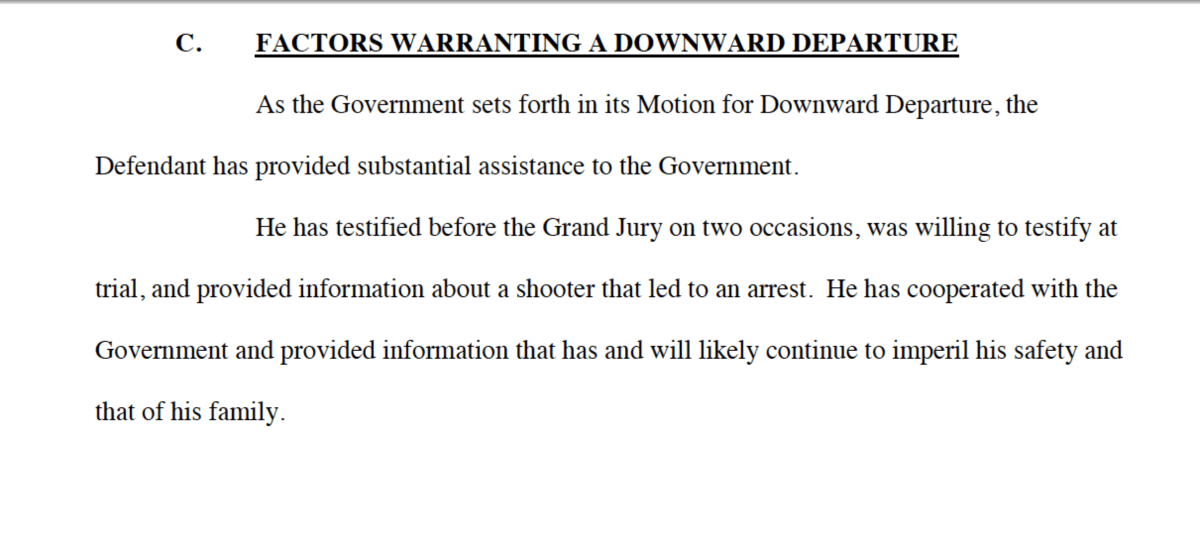Man Accused Of Shooting 6 Philadelphia Police Officers Was Federal Informant
A federal prosecutor in Pennsylvania blamed DA Larry Krasner for a bloody standoff, but the suspect has a long relationship with the government that includes a sentence reduction because of his cooperation.

U.S. Attorney William McSwain quickly blamed Philadelphia District Attorney Larry Krasner for the August 14 shooting of six police officers who were trying to serve a warrant. In a statement released less than 24 hours after the standoff ended in North Philadelphia, McSwain, the U.S attorney for the Eastern District of Pennsylvania, said the shooting was “precipitated by a stunning disrespect for law enforcement” that was “championed” by Krasner.
“The [district attorney’s office] has no interest in engaging with Bill McSwain’s inappropriate attempts to run for political office from his taxpayer-funded perch in Donald Trump’s DOJ,” Krasner spokesperson Jane Roh told The Appeal.
McSwain failed to mention, however, that alleged shooter Maurice Hill’s interactions with law enforcement predated Krasner taking office. Nor did McSwain acknowledge that the 36-year-old Hill, who on Saturday was charged by Krasner’s office with attempted murder and multiple counts of aggravated assault related to the incident, has been a federal informant for years, according to documents obtained by The Appeal.

In June 2008, Hill entered a guilty plea the U.S. District Court for the Eastern District of Pennsylvania for being a felon in possession of a firearm. He was sentenced in the case in 2010. In an April 2010 sentencing memorandum filed with the court, Hill’s attorney Wayne Maynard stated that federal prosecutors filed a motion for a downward departure from Hill’s guideline sentence because he provided substantial assistance to the federal government. “He has testified before the Grand Jury on two occasions, was willing to testify at trial, and provided information about a shooter that led to an arrest,” Maynard wrote. “He has cooperated with the Government and provided information that has and will likely continue to imperil his safety and that of his family.”
Maynard argued that Hill should receive a lower-than-average sentence because of his cooperation and that a federal prosecutor made a similar argument for such a sentence. The federal prosecutor’s sentencing memorandum was sealed by the court, so the specifics of the downward departure are unknown.
In April 2010, Hill was sentenced to 55 months in federal prison followed by three years on supervised release. That year, the average sentence for a person convicted of being a felon in possession of a firearm was more than 75 months in prison, according to statistics published by the U.S. Sentencing Commission.
According to the agency, roughly one-quarter of all people sentenced in federal court received a sentence below the standard guideline minimum, the majority of whom received sentencing relief for providing substantial assistance to the federal government.
Prosecutors often file substantial-assistance motions in these cases; upon such a motion, which states that a defendant has provided substantial assistance in an investigation or prosecution of another person who has committed an offense, the court may depart from the sentencing guidelines. However, because much of Hill’s federal court record is sealed, it is unknown whether such a motion was filed in his case.

Hill has a lengthy arrest record dating back to when he was a teenager, but has avoided a conviction in many of the cases brought against him.
Alexandra Natapoff, professor of law at the University of California, Irvine, told The Appeal that much of federal criminal law is aimed at incentivizing cooperation and a “well known bug in the system” is that informants act with impunity knowing the government will likely turn a blind eye.
There is also a long history of federal informant involvement in high-profile crimes, including mafioso Sammy “The Bull” Gravano and James “Whitey” Bulger, and mass killer Ricky Javon Gray who was involved in the murder of seven people in 2006 but later convicted and executed for killing four. In September 2001, federal prosecutors in Virginia filed a substantial-assistance motion in a drug case involving Gray.
Federal prosecutors attempted to revoke Hill’s supervised release several times after Pennsylvania prosecutors charged him with new crimes. However, all of these efforts had to be withdrawn because state prosecutors either dismissed charges or failed to get a conviction.
The final petition to revoke Hill’s supervised release came in April 2016, when federal prosecutors said he was found in possession of roughly half a gram of crack cocaine by Philadelphia police and then charged with misdemeanor drug possession.
In May 2016, the district attorney’s office offered Hill a plea deal in the case, but it was rejected according to a copy of his charging docket obtained by The Appeal. On Aug. 31, 2016, Judge Charles Hayden granted a motion to suppress the evidence in Hill’s case which led to prosecutors dismissing the case in October 2016. Records related to the case were sealed after Pennsylvania’s Clean Slate law was passed in 2018.
A spokesperson for McSwain, who sworn in as U.S. Attorney in April 2018, declined to comment on the Hill case when contacted by The Appeal.
